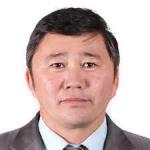
The UNESCO-UNEVOC International Centre: Who We Are | What We Do | Working With Us | Get in Touch
The UNEVOC Network: Learn About the Network | UNEVOC Network Directory
For Members: UNEVOC Centre Dashboard
Thematic Areas: Inclusion and Youth | Digital Transformation | Private Sector Engagement | SDGs and Greening TVET
Our Key Programmes & Projects: BILT: Bridging Innovation and Learning in TVET | Building TVET resilience | TVET Leadership Programme | WYSD: World Youth Skills Day
Past Activities: COVID-19 response | i-hubs project | TVET Global Forums | Virtual Conferences | YEM Knowledge Portal
Our Services & Resources: Publications | TVET Forum | TVET Country Profiles | TVETipedia Glossary | Innovative and Promising Practices | Toolkits for TVET Providers | Entrepreneurial Learning Guide
Events: Major TVET Events | UNEVOC Network News
The Mongolian National Institute for Educational Research was founded in 1956 and is one of the first scientific research institutes of Mongolia that has been conducting educational research and methodological activities for over 70 years.
Starting from the 1950s, the Institute has developed and updated Mongolia's pre-school and primary, secondary, tertiary and vocational education system, produced content, methodology, assessment, textbooks, materials, and scientific basis for training environment at these educational levels and teacher's professional development, and made a great contribution to enlightening and educating children, youth and citizens.
The Institute currently conducts regular research, analysis, experience, methodology and training on preschool, elementary and secondary education, providing professional and methodological management of local educational institutions, and providing training on all levels of education. It also provides professional and scientific support for research and methodology and conducts basic scientific and applied research on educational development issues while disseminates research information among the public.

